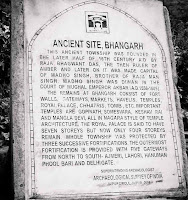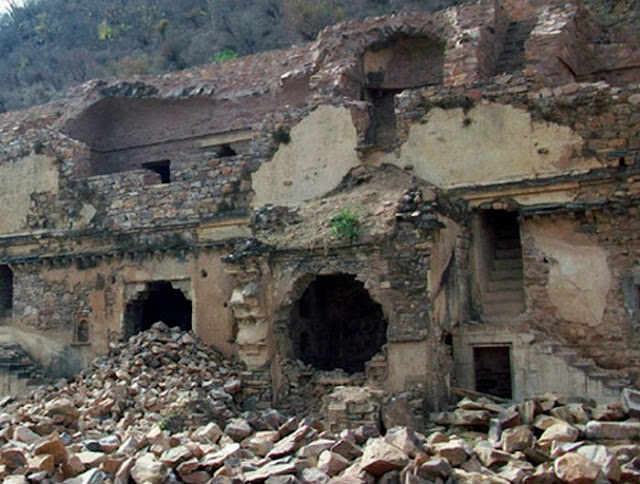Bhangarh is pre-historic
site located between Jaipur and Delhi in the Alwar (80 kms North East of Jaipur) district
of thestate of Rajasthan in India. It is well known for its ancient ruins. It
was established in 1573 by Madho Singh as his residence during the reign
of Maharaja Bhagawant Das.
Madho Singh was the second
son of Maharaja Bhagawant Das, and younger brother of Man Singh of Amber, who
was a trusted General and one of the Navratana’s of the great Mughal emperor
Akbar.
Bhangarh included exotic
buildings like the temples of Gopinath, Shiva (Someshwar), Mangla
Devi, Lavina Devi and Keshava Rai. There are several havelis, a mosque, a
fort, and several shops among the main road. The fort was protected by two
inner fortifications across the valley. The town is separated from the plain by
ramparts with five gates.
The next ruler of Bhangarh was Chhatr Singh (Madho Singh’s son). Bhangarh slowly declined, after the death of Chattr Singh in 1630 in a violent attack.
In 1720, after the death of the Mughal emperor Aurangzeb, Jai Singh II attached Bhangarh to his state by force. The population of Bhangarh started declining, which continued till 1783, when the fortress and the city were completely abandoned due to a famine. Since the famine of 1783 the town has remained uninhabited.
The Bhangarh Fort in Rajasthan is considered haunted and is placed at 1st position
in the list of ten most haunted places in India.
Related Post: Myths / Legends of Bhangarh Fort












No comments:
Post a Comment